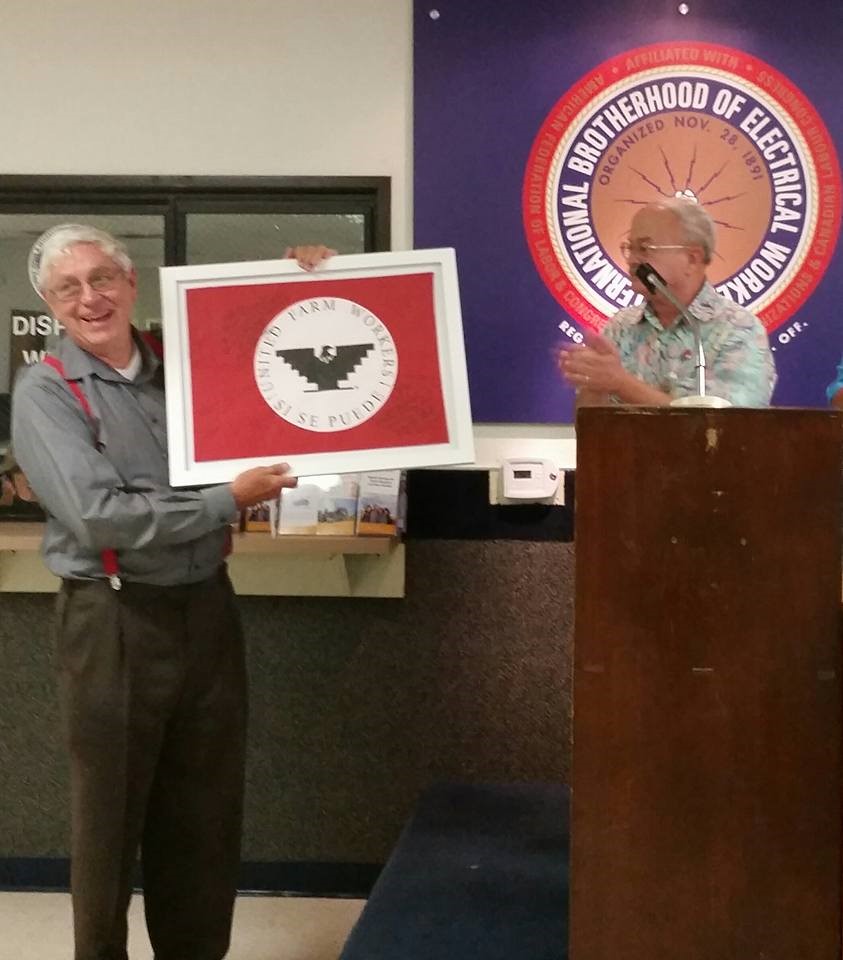We sadly learned from the Sacramento Central Labor Council of the passing on Sept. 23 of Bill Camp, 80, former longtime leader of the council who was a solid champion of farm worker rights since playing a central role for a decade at the California farm labor board from when it was forming in 1975. Bill dedicated the rest of his life to defending the United Farm Workers as well as all struggling workers and other civil rights and social justice causes.
He was born and raised on a farm near Anderson, South Carolina, a cotton mill town at the foot of the Smokey Mountains. He joined the civil rights movement in 1962, fighting against racial segregation in colleges. After offending the state president of the White Citizens Council, Bill was put on an assassination list. He moved to the West Coast at age 20.
Bill, his wife Catherine and their sons, Bill and Bayliss, moved to Sacramento following Jerry Brown’s election as California governor in 1974. When the historic farm labor law passed the following year, Bill went to work with the newly created Agricultural Labor Relations Board, the state agency created to enforce farm worker organizing and bargaining rights. He won workers’ respect by safeguarding the security of ballot boxes during union elections.
Imperial County lettuce striker Rufino Contreras was murdered during the 1979 vegetable industry strike while growers refused to bargain in good faith for renewed UFW contracts. KKK crosses were placed in struck fields. With his distinctive southern accent, Bill was dispatched to the valley to try to defuse tensions. Sheriff’s deputies were stopping strikers from following strikebreakers to the fields so they could talk with them. Bill suggested the UFW file unfair labor practice charges against the sheriff. Some growers settled and workers won significant wage increases.
Later, Bill heard complaints from Imperial County about fallout in local schools. Farm worker children often went to work in the fields after finishing eighth grade. With improved UFW
contracts, more were showing up for the 9th grade, causing a shortage of classroom space. Bill learned how union contracts created new opportunities for farm worker families.
Republican Governor George Deukmejian’s political appointees began shutting down enforcement of the law once he took office in 1983. GOP staff said Bill would be fired and money for his salary was cut from the state budget. Bill took a big pay cut to stay with the agency and kept working to protect workers.
Serving as secretary-treasurer of the Sacramento Central Labor Council, AFL-CIO from 1999 through 2014, Bill was more than a labor leader. He was a warrior for social justice who understood the fight for workers’ rights was closely tied to broader battles for racial and economic equality and civil rights. He was also a mentor to many young organizers.
Bill Camp is survived by his wife, Catherine; sons Ben and Bayliss; five grandchildren, Elizabeth, Beck, John Daniel, Owen Jacques and Ezra Julian; and a niece, Kneece.

